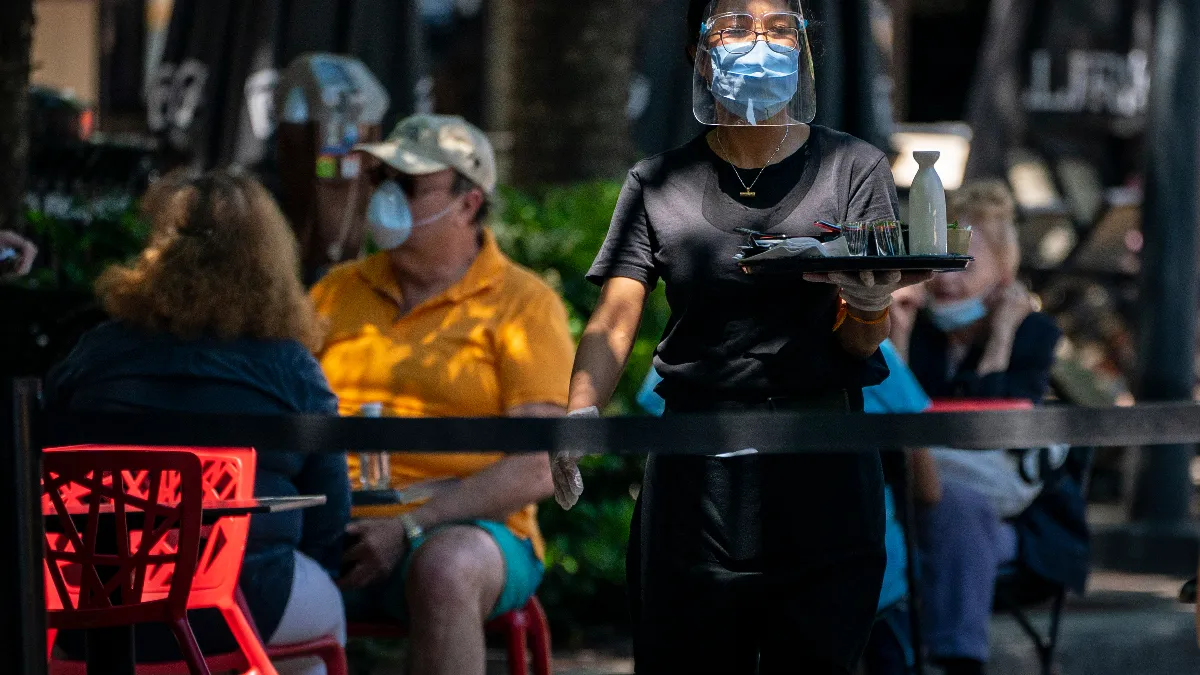Dive Brief:
- The U.S. Department of Labor will expand its ability to fine employers that keep gratuities meant for workers, it announced Thursday. The change will apply to accidental or first-time offenses.
- With the Final Rule, the agency will withdraw a Trump-era standard that allowed it to assess such penalties only for willful or repeated violations. DOL can assess up to $1,100 for each violation.
- The rule is scheduled to be published in the Federal Register on Friday and will take effect 60 days later.
Dive Insight:
Thursday’s announcement represents the latest in a series of changes to regulations affecting worker gratuities.
Under the Obama administration, DOL shifted tip rules to favor employees. The agency then changed course under the Trump administration, addressing tip pools, the 80/20 rule and civil penalties, as described above. The Biden administration is now working to reverse some — although not all — of those updates.
In addition to addressing civil penalties, Friday’s rule also may expand opportunities for a violation to be deemed willful. Previously, a violation was considered willful if the employer received advice from the agency indicating that its actions were unlawful or if the employer acted in "reckless disregard" of the Fair Labor Standards Act. Now, the regs will state that "reckless disregard of the requirements of the Act means, among other situations, that the employer should have inquired further into whether its conduct was in compliance with the Act and failed to make adequate further inquiry." DOL also said it will take into account "all of the facts and circumstances surrounding the violation."
The rule also will clarify that while managers and supervisors may not receive tips from mandatory tip pools or tip-sharing arrangements, they may contribute to such arrangements, DOL said. And a manager or supervisor may keep tips "only when the manager or supervisor receives tips from customers directly for service a manager or supervisor directly and 'solely' provides."
These changes are aimed at strengthening protections for tipped workers "who are largely women, immigrants and people of color," a DOL official said in a statement, thereby advancing equity in the workplace.
"Civil money penalties are an incentive for employers to comply with their legal responsibilities," Jessica Looman, acting administrator for DOL’s Wage and Hour Division, continued; "When employers don’t comply, these penalties are a useful enforcement tool we can use to help achieve compliance."











